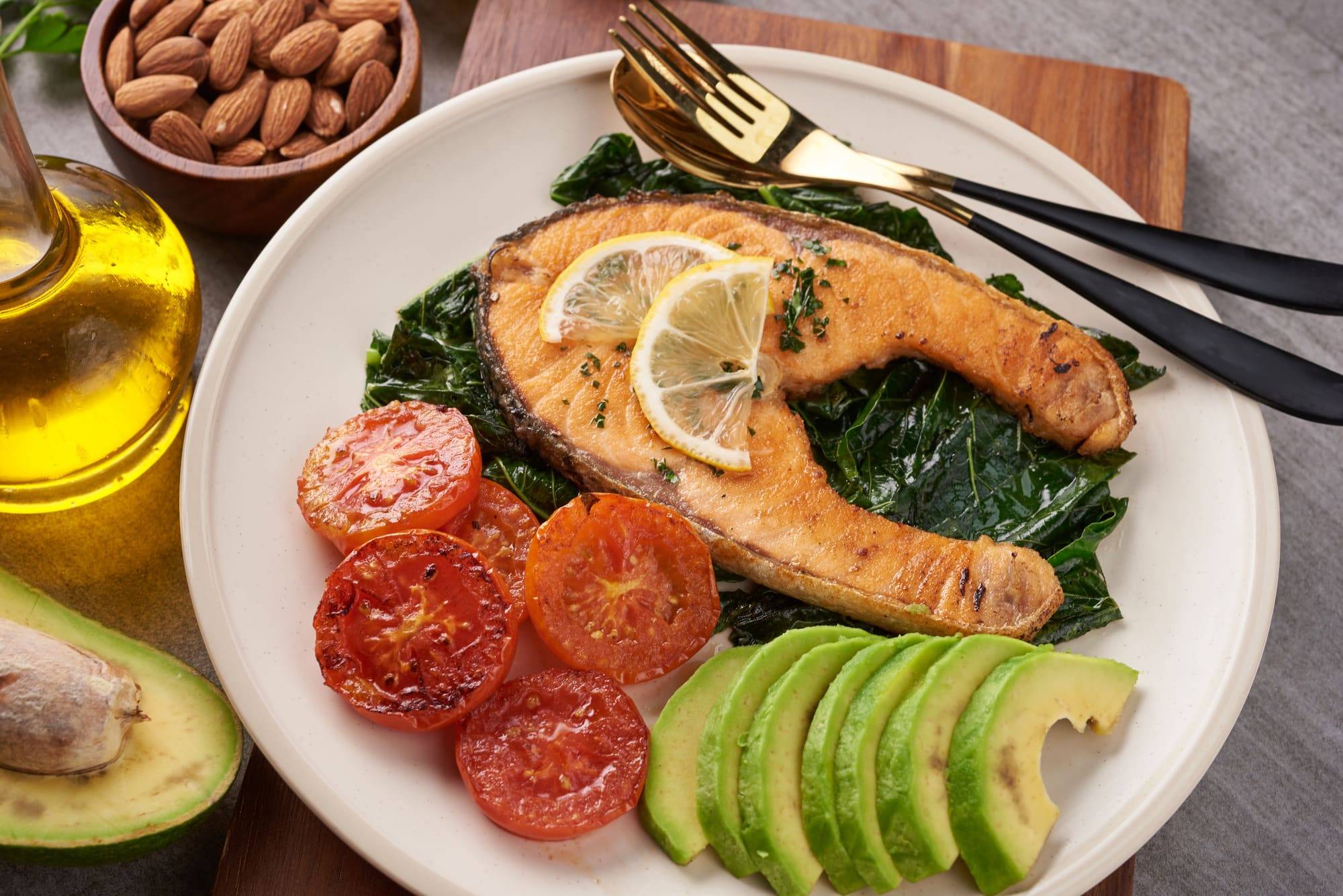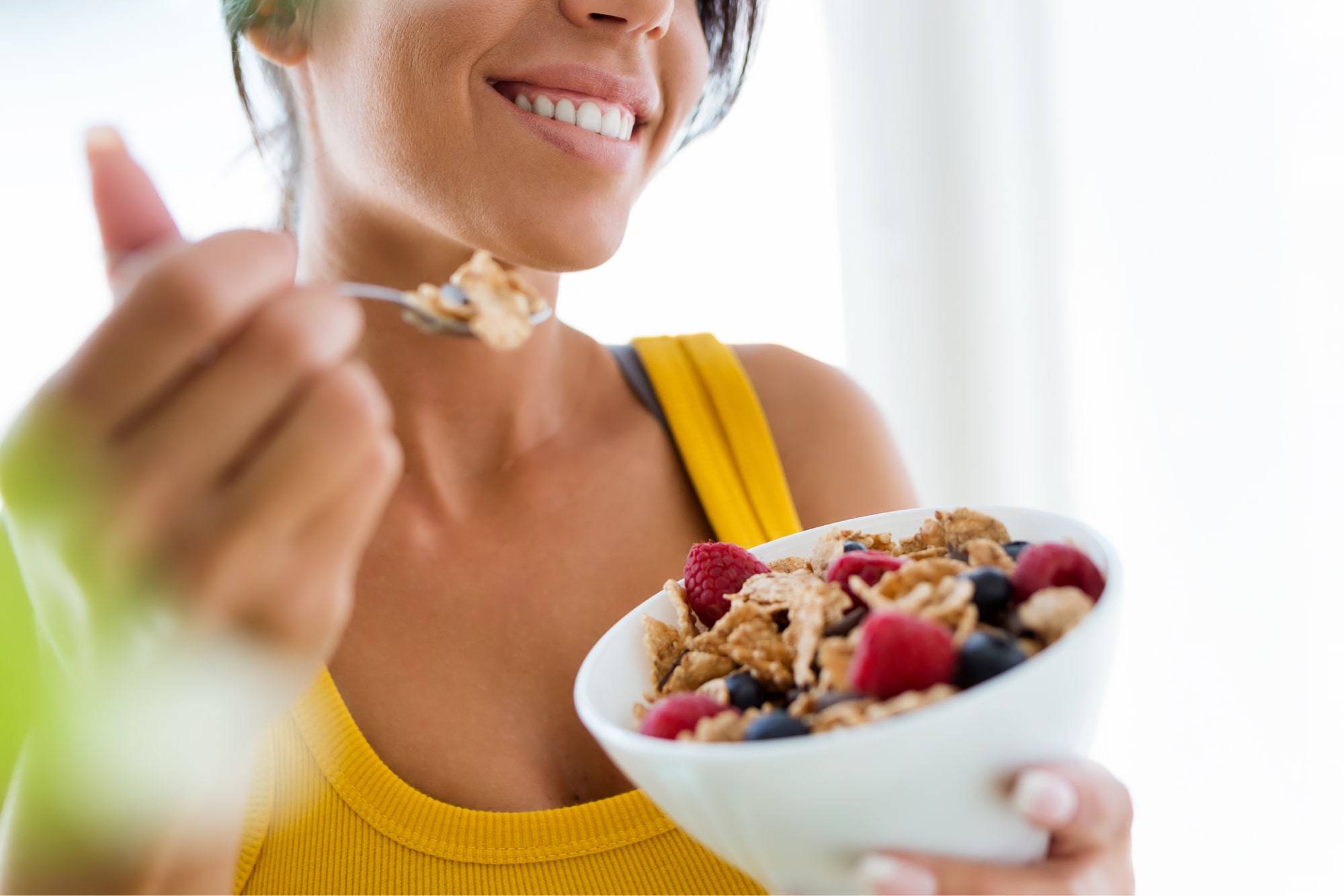If you are going to start running, you should eat properly for endurance and performance. In this blog post, you will learn some basic nutrition tips about what runners should eat before and after training.
What Foods Make You Run Faster and Longer
To improve and achieve the best results, you must pay attention to what you eat and when you eat. Your body needs fuel for endurance, and your muscles need extra protein to function properly and recover after training.
1. Carbohydrates
Carbohydrates are the main source of energy for your body. They are like “reactive fuel for muscles.” When you run, carbs provide instant energy. That’s why sports drinks and prepackaged foods contain a lot of easily digestible carbohydrates.
Carbohydrates can be simple or complex. Simple carbohydrates are those that cause an imbalance in glucose levels. They cannot be digested, so they accumulate in the form of fat (soft drinks or juices, sweets, or cookies).
While complex carbohydrates (whole grains, rice or whole wheat pasta, potatoes, red fruits, or legumes such as chickpeas) create a nourishing effect and are usually rich in other essential nutrients such as fiber, vitamins, and minerals. Complex carbohydrates are much better for a runner’s diet than simple ones.
However, if you are just starting, you probably don’t need a lot of carbs. Consuming carbs can help “minimize glycogen depletion and keep blood sugar level,” says Deborah Shulman, Ph.D., a sports nutritionist in Bellvue, Colorado. On the other hand, if you eat too much midrun, your stomach won’t be able to digest all the carbs, and you’ll experience sloshing, bloating, or cramping feelings that signal carb overload.
Carbohydrates should dominate your diet if you are a more experienced runner, running several miles in training or preparing for a race. So don’t consume large quantities of carbohydrates before training if you are not going to run for more than 90 minutes. Carb consumption increases with the milage.
2. Proteins
You should consume 1.3 to 1.5 grams of protein per day for every pound of weight. Although it seems small, when combined with proper carbohydrate intake, you optimize the use of amino acids that provide protein. Proteins can be found in meat, fish, eggs, dairy products, nuts, and legumes.
The more often you exercise and the further you run, the more recovery your muscles will require. Protein is needed to repair tendons and muscles, as well as to regulate hormones.
The higher the quality of the protein you consume, the better, especially if your workouts also focus on weight loss. In these cases, eating foods such as lean meat, tofu, nuts, or fish is recommended.
3. Fats
Fats are essential for your diet because they are needed for forming many tissues in your body and for absorbing fat-soluble vitamins such as vitamins A, D, E, and K.
Fats are macronutrients that provide you with the most calories per gram (9 kcal/g), twice as many as carbohydrates and proteins. Some healthy fats should be included in your diet. In fact, almost 30% of our diet should come from healthy fats, such as monounsaturated fats found in olive oil, avocados, and walnuts.
Meanwhile, saturated fats should make up no more than 7% of your calorie intake. Where can they be found? Preferably in animal products such as milk and its derivatives or fatty meats.
Another type of healthy fat needed in a runner’s diet is polyunsaturated fatty acids such as omega 3 and 6. You will find them in foods such as fatty fish, shellfish, or vegetable oils. Of course, you should avoid eating too many products with trans fats, such as butter, fried foods, or desserts.
4. Vitamins and Minerals
Both vitamins and minerals are important for your performance and endurance. If you eat a balanced diet within the recommended percentage of complex carbohydrates, fats, and proteins, these products should provide you with all the necessary vitamins and minerals.
Therefore, it is not necessary to include vitamin supplements in your diet, especially if you are a beginner. Supplements should never replace a healthy and varied diet.
5. Hydration
Drinking water is crucial for runners, especially those prone to excessive sweating. As a rule, consuming at least 2 liters of water a day is ideal.
Keep in mind that teas, juices, and sports drinks are also considered liquids, but caffeine and alcohol are not.
Drinking lots of water at once is not good because you need to maintain fluid levels. You should hydrate yourself throughout the day because dehydration can lead to cramping, soreness, fatigue, and even heat stroke.
Drinking sports drinks with glucose within the first 15 minutes after a race can help your muscles recover after running.
Balanced Nutrition for Runners
In short: a balanced diet for a novice runner will contain 20-30% fat, 50-60% complex carbohydrates, and 10-20% protein.
Keep these key points in mind:
- You are more interested in complex carbohydrates than simple ones.
- You should eat healthy fats daily (20-30%).
- Avoid trans fats and processed foods.
- Your protein intake should be 1.3 to 1.5 g per pound of weight.
- It is important to eat fruits and vegetables daily.
- Eat food instead of supplements whenever you can.
- Eat a variety of foods to get nutrients.
- Coffee can help you work out better, but it will not hydrate you.
- Drink about 2 liters of water or fluid a day.
Note: Shakes (proteins, carbohydrates) or sports drinks can be a good source of energy and come in handy for runners who wake up early and don’t have time for a proper breakfast, but they will never be better than a real diet.
What to Eat Before and After Running
Now that you know what to include in your diet, you need to know when it is best to eat these foods. Make changes to your diet little by little so that your body can adjust to these changes.
What to Eat Before Running
You can have a snack before you go for a run. This will help you maintain optimal blood sugar levels and help restore your glycogen stores.
To avoid intestinal problems such as nausea, gas, or cramps, the food you eat before your workout should be low in fat and fiber. Good options include:
- fruits that give you energy – bananas, apples, Goji berries;
- cereals;
- toasts;
- energy bars;
- fruit smoothies;
- pasta.
Remember to eat a snack at least an hour before running.
It is not recommended to eat during training unless we’re talking about training for over an hour. Carbohydrates, in particular, will cause an initial spike followed by a heavy drop in blood-glucose levels. In fact, at first, you may not even need to carry a bottle to hydrate yourself, as your workouts will be short.
After Running
Recovery food for runners includes drinking protein shakes 15-20 minutes after running. This will allow you to replenish fluids and restore tired muscles quickly.
After one or two hours, you can eat more nutritious foods rich in complex carbohydrates, proteins, and healthy fats to fully restore muscles and tendons.
Gradually, you will see your metabolism change and speed up, which means you will burn more calories without even exercising. Whether you want to lose weight or not, this is something you should also consider.
Wrap Up
This is just a very basic nutrition guide suitable for people who want to start running. Your diet will be modified and varied according to the goals you set for yourself as a runner. Serious runners should consult a sports nutritionist.






